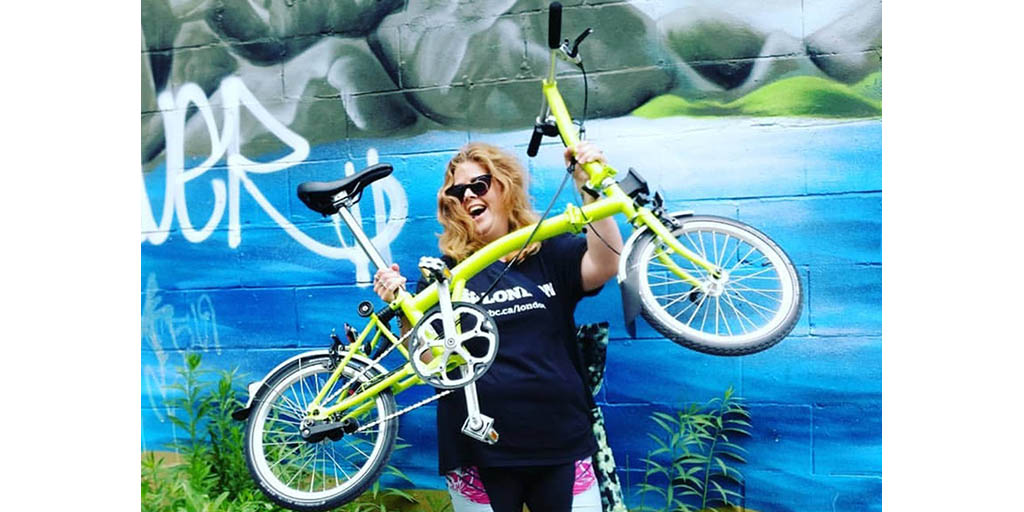Meet London's first bike mayor
 CREDIT: PROVIDED BY SHELLEY CARR
CREDIT: PROVIDED BY SHELLEY CARRShelley Carr is tackling local bike theft in her new role as London's bicycle mayor.
London is now the home of its first ever “bicycle mayor”, Shelley Carr, a student in Fanshawe’s Lawrence Kinlin School of Business.
Carr told Interrobang she was given the position after the BYCS community noticed her passion for cycling on Twitter. BYCS is an international program established and based out of Amsterdam that looks to transform cities into being more accommodating to the growing cyclist community. She was nominated for the position by these observers and will serve in that role for two years.
“I have an over-reaching goal of 5 kilometres of protected bike lanes, in addition to the 1.2 kilometres of protected bike lanes we have now,” Carr said of her plans during her two-year term.
These protected bike lanes are, in her opinion, the safest way in which cyclists, pedestrians and motorists can travel. London currently has over 40 kilometres of bike paths throughout the city on the Thames Valley Parkway (TVP), but despite its effectiveness to connect cyclists from one part of the city to the next, it is not always the best alternative for transport.
“Cycling infrastructure is available 24 hours a day, all year round and it’s protected. The TVP’s limitations are that it’s designated as a multi-use pathway, so there’s always going to be conflicts between cyclists and pedestrians,” said Carr.
Other potential pitfalls of the TVP are that it is not accessible at night and the parks that it runs through have some poorly lit areas which could pose a risk to cyclists. The construction and accessibility of protected bike paths on city streets can help to minimize those concerns.
Carr has envisioned a future that allows more students a safe alternative means to get to school.
“We need to make it so that [students] can bike here safely and we need protected bike lanes to do that. I would love to see First Street have a totally protected bike lane so you have a connection to the TVP. That would at least increase the number of cyclists that can ride to the College, because in the better months they could ride up the TVP and get here,” said Carr.
Currently the College has a bike lock facility, bike rental program, bike racks and a patrol that notifies cyclists about the effectiveness of their bike locks by tagging ones they see as unsafe.
Carr invites cycling enthusiasts to participate in the upcoming push by BYCS representatives to encourage the city to adopt Project 529, a bike registry that can help decrease the number of bike thefts within the city. Also, efforts to collect petition signatures to get the city to add bike lockers downtown can be found on change.org.
“A bike locker is a large metal box that you roll your bike into and then you lock it with your lock and then your bike is safe. They can’t take the bells, they can’t the lights, they can’t take the tires,” said Carr.
Believing that the current state of the College’s cycling infrastructure is something from which the city as a whole can learn from, Carr would still like to see more accommodations made. These include a push for better quality bike locks sold at the bookstore, a roof cover to protect bikes from the elements for cyclists of all seasons and the addition of bike lockers, like the ones requested for downtown.
To learn more about BYCS, go to bycs.org.














